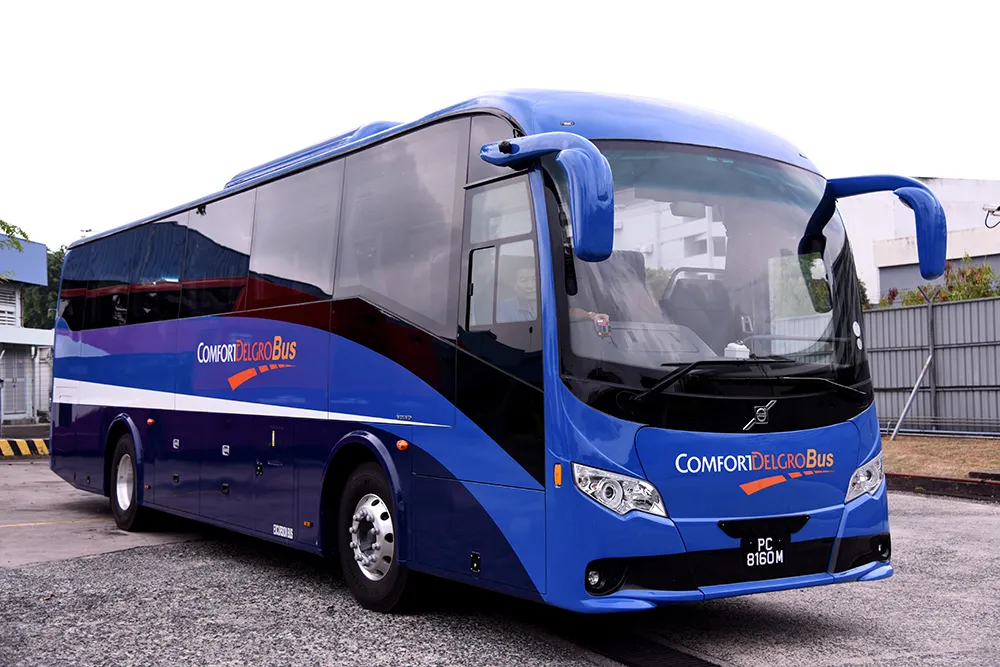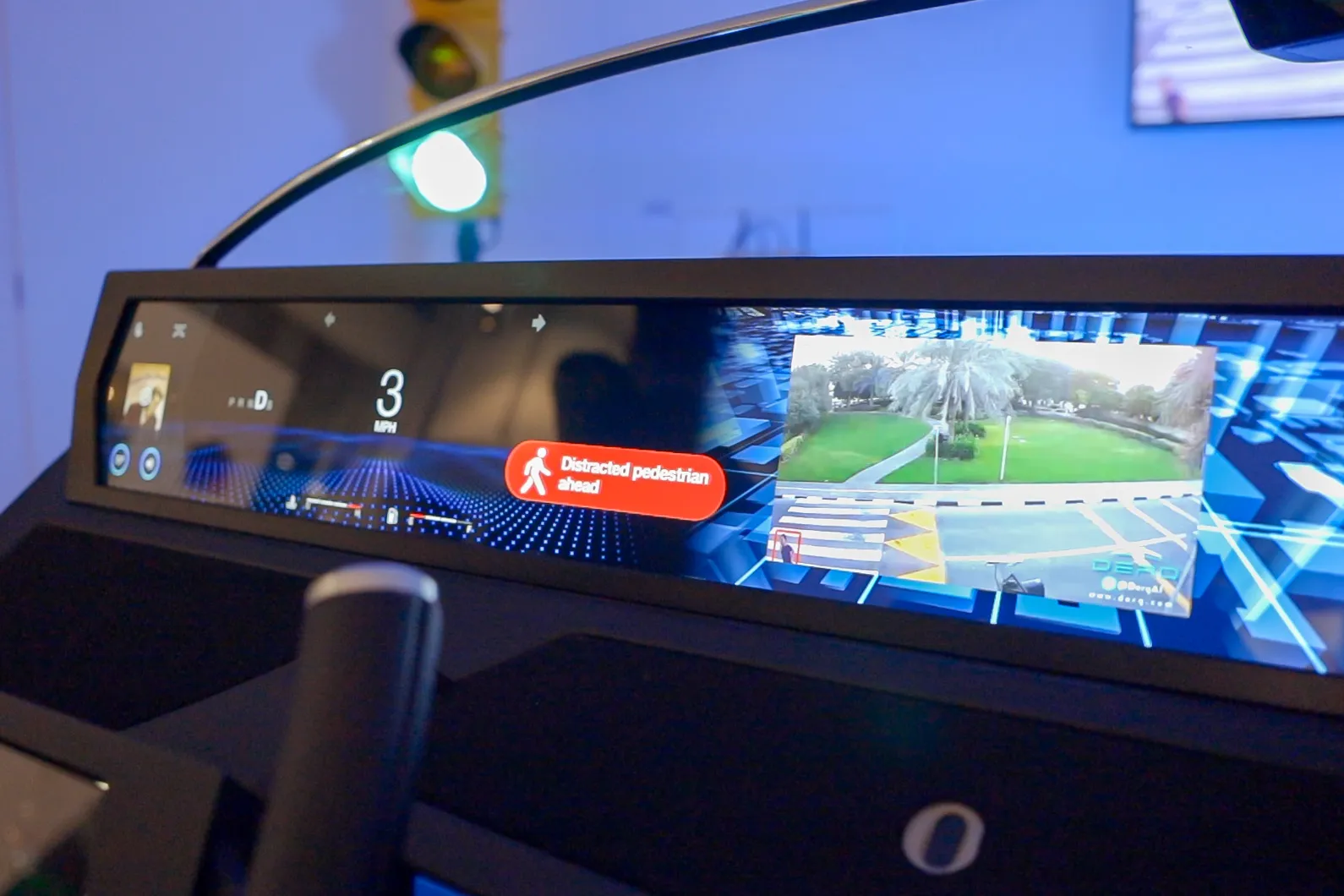
ComfortDelGro says each Volvo B8R bus is equipped to brake automatically and come to a stop if it ‘senses’ a collision.
A radar-based sensor and camera are activated once the bus accelerates past 15km/h. Once it detects a potential collision with another vehicle, the system alerts the driver through a blinking red light on the dashboard and a beeping sound. If the driver does not respond, the system is expected to initiate soft braking before applying full braking.
The system comes with a lane-keeping assist function that alerts the bus driver when it veers into other lanes. The braking system activates if it senses a frontal collision threat, the company adds.
Pang Weng Heng, CEO of ComfortDelGro Bus, says: “With its ability to intervene and stop the bus before a frontal collision happens, Volvo’s CWEB feature is a welcomed safety enhancement that will help our bus drivers avoid critical situations and accidents.”










